The band Blondie got its start in the fertile mid-to-late 70’s New York City punk rock / New Wave scene, and went on to mainstream success with hits like “Heart of Glass”, “Rapture”, “Call Me”, “The Tide Is High”, “One Way or Another”, and “Dreaming”. They recently released their 11th album called Pollinator.
Along with singer Debbie Harry and drummer Clem Burke, guitarist Chris Stein has been with the band since the early days. He co-wrote some of the band’s best-loved songs including the aforementioned “Heart of Glass”, “Rapture”, and “Dreaming”, plus “In The Flesh”, “Rip Her To Shreds”, and “Fade Away and Radiate”.
This interview was for noozhawk.com for the 7/7/17 Blondie concert at the Santa Barbara Bowl, with co-headlining alt-rockers Garbage, and openers John Doe and Exene Cervenka from the band X. It was done by phone on 6/9/17. (Alexander Thompson photo)
Jeff Moehlis: What can people look forward to at the upcoming show?
Chris Stein: We’ve got a bunch of new songs in with the standard stuff, and it seems to integrate well. The set is evolving always. There’s a couple of rehearsals coming up, and I don’t know if we’ll add anything or change anything at this point.
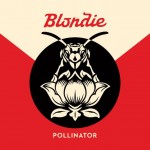
JM: Can you tell us a bit about how the new album Pollinator came together?
CS: I knew we had to do a more rock ‘n’ roll, band-oriented approach to refresh ourselves. Working with [producer] John [Congleton] was great – we had a good time with him.
JM: At the show in Santa Barbara there will be an opening set by John and Exene. Did you ever interact with them back in the day?
CS: We were on tour with them a couple of years ago, but back in the old days not so much.
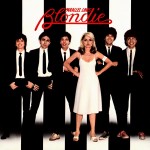
JM: The Parallel Lines album is almost 40 years old. What are your reflections on that particular album?
CS: We were lucky with [producer] Mike [Chapman], and I like that the sound isn’t dated. Sometimes you listen to stuff from the 70’s and the 80’s and it sounds very period, just how it sounds sonically. But that sounds like stuff I hear now, even though right away it triggers memories because it is from that period.
JM: One of the songs on that album was “Heart of Glass”. How did that song come together?
CS: We demo’d it for a long time, and it was still kind of a normal rock, almost reggae thing. It kind of was referencing “Rock the Boat” [by The Hues Corporation]. Then we started messing with the electronic aspects of it, and we had the synthesizer and the rhythm machine synchronized – that was a big deal at the time. So that became the foundation of it. And we were kind of referencing Kraftwerk with it. We didn’t think of the disco aspect of it that much.
JM: Another song on that album that you wrote is “Fade Away and Radiate”, and the recording has some guitar on it by Robert Fripp. How did Fripp enter the picture for Blondie?
CS: Fripp just came up to us after a show at one point, and we’ve been friends ever since. I still am in touch with him. He’s great. We’d like to get him on something in this modern period. It’s just a matter of logistics.
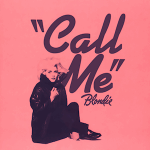
JM: I remember hearing “Call Me” on the radio all the time. What was it like working with Giorgio Moroder for that song?
CS: Giorgio, he was very fast. We did that really quickly. We replaced some of the parts. But he was great. We see him around every now and then, too. He’s still going at an advanced age.
JM: What inspired the song “Rapture”, and were you surprised by how successful it was?
CS: I don’t know if I was surprised. We had gone a rap event in ’77. We went to a big show, and it was just really exciting, and it just seemed like a no-brainer to reference that.
JM: I’ve read that the rap part of that song came together very quickly. Is that correct?
CS: Yeah. I mean, some of it was written outside of the studio. It wasn’t all made up on the spot. But it was adjusted pretty quickly.
JM: Listening to the old Blondie albums, it’s really striking how there was so much diversity in styles. How did the band approach the balance of giving people what they expected and exploring new things / pushing the boundaries?
CS: You know, we just kind of did what we wanted. There wasn’t a lot of pre-thought going into it. We just did what excited us, and what we liked.
JM: Going back to the very early days of the band, what, to you, was the good, the bad, and the ugly about the early punk rock scene, the CBGB’s and Max’s Kansas City era?
CS: It was a great time. Everything was exciting, but a lot of people died. Nobody understood the dangers of drugs and all that kind of stuff. A lot of people are gone from that period.
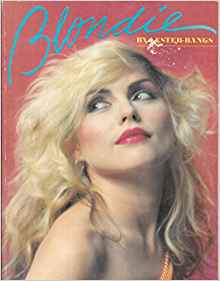
JM: Lester Bangs wrote a book about Blondie that was kind of bizarre. What did you think about that book when it came out?
CS: You know, Lester was annoyed we were working on a book at the same time and we didn’t want to do interviews with him. So I think that pushed him over the edge a little bit. He wanted to interview us for his book. Now, in retrospect, I see him being horrified at Debbie’s overt sexuality, and I find it kind of naive on his part. I often say I wish he was around now – I’d like to see what he thinks of Britney Spears or Iggy Azalea.
JM: It’s cool that you hung out with Andy Warhol. What was he like?
CS: Andy was great. We were close to him for the last ten years of his life. He was a generous guy, he was very sweet, and he was a good listener.
JM: Did you pick up anything on the philosophy of art from him?
CS: Maybe a little bit. You know, he was very calm, and he had his fingers in a lot of things. Really, he was very nice. Anybody that’s powerful has a lot of detractors, and people who say things about them. But for me, he was always a really sweet guy, and I try to be positive and not go crazy in my dealings with people.
JM: What advice would you give to an aspiring musician?
CS: The one piece of advice that I generally give is that enthusiasm isn’t enough. You also have to practice and do the work. I mean, it’s great to be excited and plunge ahead, but there’s a lot of hard physical effort that goes into it, too. And a lot of boring stuff. You have to be able to deal with repetition.
JM: If you think back to the early days of Blondie, who were your influences on guitar?
CS: I was a huge Jimi Hendrix fan. I still don’t think anybody’s ever come close to what he was doing. Then all the usual suspects – The Stones, a lot of the old blues guys, too. I was a big Bukka White fan, I was a big John Fahey fan. You know who John Fahey was?
JM: Sure.
CS: I was a big fan of his. I actually saw him a couple of times and spoke to him. And I was a really big Stones fan. And then people who were around us, too – The [New York] Dolls, Television. All those guys were influences.
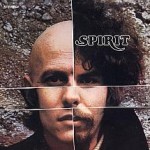
JM: This is probably a coincidence, but when I listen to the guitar part on the song “Man Overboard”, it reminds me of a guitar lick on a song “Mechanical World” by Spirit.
CS: That’s interesting – I’ll check it out.
JM: I’m curious if Randy California [from Spirit] was an influence on you?
CS: Not so much. Was that the band that had the lawsuit with Led Zeppelin for “Stairway to Heaven”?
JM: Yeah, that was them. This is a different song, though. I’m thinking of the part that goes [sings guitar lick 1:45 into “Mechanical World”, 2:10 into “Man Overboard”].
CS: That’s totally funny – I don’t know. It’s kind of a Latin pattern.
JM: Besides the tour, are there any other projects in the works?
CS: I’ve got one more photography book I could get out next year. And more music eventually. I’m now just doing the touring and promotion for the record, which is all-consuming.
JM: Have you guys ever played in Santa Barbara before?
CS: Yeah, I’m sure. I’ll remember it when I see it. Sometimes when I get to the halls, or backstage, that’s when my memories kick in. The bass player Leigh [Foxx] and [drummer] Clem [Burke] have rock ‘n’ roll memories everywhere. Leigh, especially, remembers every fucking hotel and stuff.
JM: I don’t know if that’s good or bad.
CS: Yeah, I don’t either. He’s kind of a savant. [JM: For the record, Blondie played at the Santa Barbara Bowl on August 21, 1999.]
JM: You’ve been doing this for over 40 years, off and on. Is it still fun for you to get up onstage and play these songs?
CS: Yeah, sure. The shows are a lot of fun. It’s a lot more relaxed, and there’s a lot less tension involved, in having to prove ourselves. There’s a lot more acceptance, and I always like playing to bigger crowds, too.


Discussion
No comments for “Interview: Chris Stein”